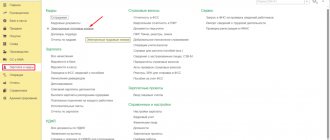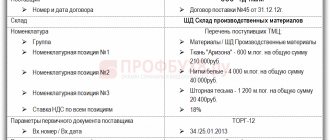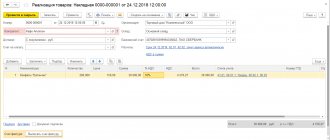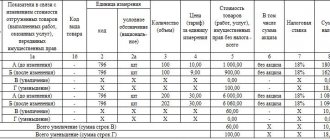In order to understand how to work and use a special account, it is enough to have a general understanding of three things directly related to this issue:
- What is the special account used for in public procurement?
- How is it involved in the bidding procedure itself?
- How to use a special account in practice, sitting directly at the computer.
Let's quickly go through each of these three points and refresh this information in our memory, especially since not so long ago new amendments to 44-FZ on government orders were adopted again.
Background to the emergence of special accounts
The concept of special accounts for public procurement was introduced on the last day of 2021 by law 504-FZ. He changed paragraph 10 of Article 44 of Law 44-FZ and established that from July 1, 2018, application security will be charged in a new way. Each supplier must open an account in an authorized bank , the list of which is approved by the Government, and deposit funds into it. It is from this money that sites must collect application security. Previously, funds were blocked for this purpose on the participant’s personal account on the ETP.
A little later, on April 12, 2021, the Government, by its Resolution No. 439, introduced the following rule: customers are required to establish application security only if the contract amount exceeds 1 million rubles. In cheaper auctions, customers have the right to establish bid security, but they do not have such an obligation.
Registration in the ERUZ UIS
From January 1 2020 , in order to participate in bidding under 44-FZ, 223-FZ and 615-PP, registration in the ERUZ register (Unified Register of Procurement Participants) on the EIS (Unified Information System) portal in the field of procurement zakupki.gov is .ru.We provide a service for registration in the ERUZ in the EIS:
Order registration in the EIS
On July 13, 2021, Government Order No. 1451-r , which provided a list of 18 banks authorized to open special accounts for government procurement. However, the implementation of this mechanism was postponed, as was the transfer of trading to electronic form, until October 1, 2021 (letter of the Ministry of Finance of Russia dated June 25, 2021 No. 24-06-08/43650). This happened due to the fact that by that time the Ministry of Finance had not yet approved the list of sites for conducting auctions under 44-FZ. At that time, only auctions were still held in electronic format, that is, everything remained the same, including securing the application.
On October 1, 2021, the new system finally started working. Now all auctions (with rare exceptions) have been transferred to electronic format and are held on newly approved electronic trading platforms. There are now 9 of them: the usual procedures are carried out at 8 sites, and another one - AST GOZ - is intended for bidding within the framework of the state defense order. At the same time, the mechanism for using special accounts began to be implemented.
The list initially approved by the Ministry of Finance included 18 banks. But on February 13, 2021, 2 government orders were signed at once (No. 213-r and No. 214-r), which changed this list. Now there are 21 banks, and their SPMS looks like this:
New list of banks for opening special accounts
procedure for opening a special bank account, list of banks.
As of today, the list of banks where you can open a special account is still in development. However, some already provide this service. You can order a free opening at Raiffazeng Bank.
But most likely this list will consist of “List of banks in which ETP operators open accounts to account for the funds contributed by the competitor to guarantee the application”
This list is regulated by the Unified Information System in the “documents” section
As of April 3, 2018, the list consists of 62 banks. This list includes banks such as: Sberbank, Tinkoff, VTB, Raiffeisenbank and other well-known banks.
At this time, the draft Government Resolution is posted on the regulatory website regulation.gov.ru, which states that you can create a special account in a bank that has an agreement on opening an account, but only if all requirements are met.
Using a special account: step-by-step instructions
Step 1. Registration in the UIS/ERUZ
This step applies to new suppliers who, until the end of 2018, were not accredited by any of the federal ETPs. In order to open a special account in 2021, they must first register in the UIS and make sure that they are included in the Unified Register of Procurement Participants (URP). If the supplier is not in this register, then he will not be able to open a special account.
If before the end of the previous year the supplier was accredited at least on one of the federal platforms, then in 2021 he will be able to open a special account without registering with the Unified Information System. However, do not forget that you must register in the system and get into the ERUZ before the end of 2019 - this applies to all suppliers.
You can start the procedure for opening a special account even if you do not have accreditation for the electronic trading platform or registration in the unified information system. In this matter, banks meet their clients halfway. After all, usually the opening of a special account is accompanied by the opening of a regular account and the conclusion of an agreement for settlement and cash services. Therefore, first you can formalize this part of the relationship with the bank, and when registration in the Unified Information System (ERUZ) is completed, the bank will open a special account.
Step 2. Select a bank
You can contact any bank from the approved list, but you need to study the terms of the agreement and tariffs . For example, some banks charge a fee for blocking the security of an application, while others do not. In addition, banks are required to charge interest on the balance of funds in the account - they can also be different. The conditions for servicing special accounts may also vary.
Step 3. Providing a set of documents
A special account differs from a regular account in some additional conditions. In the case of government procurement, this condition is that, at the request of the ETP, the bank must block an amount in the account equal to the application security, and later unblock it. If the supplier wins, then the bank must write off the fee for participation in the auction in favor of the site . Otherwise, the special account is essentially a regular current account. Accordingly, to open it you will need the same documents as to open a regular account. This list may vary depending on the bank, but usually it includes:
- For legal entities (the account is opened by the director):
- constituent documents (charter, constituent agreement);
- a document confirming the appointment of a director and the extension of his term of office (minutes of a meeting of participants or a decision of the founder, an order for the appointment of a director);
- manager's passport;
- certificates of assignment of OGRN, TIN;
- other documents may be requested, for example, accounting reports, licenses, etc.
- For individual entrepreneurs (the account is opened by the individual entrepreneur):
- passport;
- certificate of assignment of OGRNIP, TIN.
Step 4. Transfer funds to a special account
Now the supplier only has to transfer funds to the account in the amount necessary to secure the applications. There are no minimums here; it all depends on the participant’s activity and the amount of NMC contracts for which he submits applications. The amount of security for applications is established in Law 44-FZ:
- if the contract price is up to 20 million rubles , the security may be 0.5 - 1% of the NMCC;
- if the contract price is over 20 million rubles - 0.5-5% NMCC.
Important! According to the new rules, the security for the application is blocked on a special account not when the participant submits the application, but at the moment the application ends . That is, you can first submit an application and then deposit money into a special account. The main thing is that the payment arrives before the deadline for accepting applications. In other words, step 4 can be interchanged with the next one.
Step 5. Participation in procurement
Next, the participant selects a purchase that interests him and submits an application. When their reception ends, the following happens:
- Within an hour, the ETP makes a request to the bank that a certain amount needs to be blocked in the account of this participant.
- The bank checks the account balance:
- If there are enough funds , the bank blocks it. In this case, the participant receives a notification that his application has been successfully submitted;
- if there is not enough money, the participant is notified that he cannot take part in this purchase.
The funds of submitted applications are unfrozen within an hour after the ETP transmits the information to the bank.
If the participant is declared a winner, the electronic platform will charge him a fee for its services in the amount of:
- 1% of NMCC, but not more than 5 thousand rubles , and in addition to this amount VAT - for regular purchases;
- 1% of the NMCC, but not more than 2 thousand rubles (VAT can be charged separately or included in the cost of services) - for purchases that are organized for small businesses and socially oriented non-profit organizations.
The fee is also charged from a special account . However, it often happens that a participant does not have one. After all, customers are required to establish security for applications with NMCC of more than 1 million rubles, and practice has shown that in cheaper purchases they establish contract security infrequently. Therefore, if a participant is counting on inexpensive contracts, he may well work in the government procurement system without a special account.
The question arises, how is the winner charged in this case? Everything is very simple. The ETP will either take it from the funds remaining in the supplier’s personal account at the ETP, or will send an invoice for payment of its services directly to the participant.
Who will be charged
The resolution in question deals with charging a fee from the winner of the purchase. Moreover, only the supplier who initially won the competition, auction or other procedure will pay for ETP services. The fee will be charged to him even if he did not enter into a government contract, that is, he evaded signing it. But the participant with whom the contract was ultimately concluded will not pay the site in this case.
Problems when working with a special account
It was not for nothing that we spoke above about the need to carefully read the terms of the contract. Sometimes ignoring these rules leads to unpleasant consequences. Some typical situations will be discussed below.
Charging a fee for blocking collateral
Some banks (for example, Sberbank) charge a fee for each fact that collateral is blocked in a special account. The amount is usually insignificant, but it may result in the tender being lost.
For example, the application security is 20,000 rubles. The participant deposits this amount into the account and expects it to be blocked as collateral. But before blocking, the bank will calculate the amount taking into account its commission , say 50 rubles. Thus, the participant’s account should have 20,050, but he only has 20,000 rubles. Accordingly, the amount in the account is insufficient to block the collateral, and the participant’s application is lost. Since the security is blocked at the end of the deadline for accepting applications, the participant does not have the opportunity to add money to the account and “resubmit” the application.
Information about the special account was reflected on the site with a delay
After opening a special account, this information must be transmitted by the bank to all electronic trading platforms , and each of them must connect this account in the supplier’s personal account . This takes some time. In practice, this is what happened: a participant opened a special account, deposited money into it, and immediately after that tried to submit an application, but was unable to do so. The problem was that the special account had not yet managed to connect to his personal account on the site. Therefore, it is recommended to open a special account in advance, and before submitting an application, make sure in your personal account that it is “up to date.”
If this does not happen, you should contact ETP technical support.
Wrong special account selected
The law allows a supplier to have several special accounts , and some take advantage of this opportunity. However, you need to be careful and, when submitting an application, choose exactly the account that has the required amount of funds. An unfortunate oversight can lead to the application being lost due to lack of funds.
Complications with using a tender loan
If the supplier does not have enough own funds to secure the application, it can attract a tender loan. Previously, this was done like this: the supplier applied to the ETP, and partner banks provided him with such a loan. At the same time, the money was not physically transferred to the supplier’s personal account on the site.
Now everything has changed. In order for money to be used to secure an application, it must first go to a special account . This means that the bank (or the organization that issues the tender loan) must first transfer them to the supplier. This requires additional time, so you need to prepare for the use of borrowed funds in procurement in advance.
Applications for the second part were rejected three times in one quarter
There is a rule in Law 44-FZ (Part 27 of Article 44) that says the following: if during a quarter at one ETP the supplier was rejected for the third time in the second part of the application, the security is not returned to him, but is transferred to the budget.
In other words, if your application was rejected twice due to the second part not meeting the requirements, then there is a risk of losing your security in one of the following procedures. This will happen if your application on the same ETP is rejected for the third time during the quarter .
If procurement security is not established, then even in the event of the next rejection of the application for the second part, nothing will happen.
What is electronic trading
These are online platforms where customers and performers meet. The customers are organizations or government agencies that need to supply goods or provide any services. The second party is entrepreneurs or companies that fulfill customer requests.
Bidding is the customer’s opportunity to choose the executor of his application. He places a tender on a special Internet platform, to which potential suppliers respond. These applications are analyzed, after which a contractor is selected. The winner is the applicant who offers the best conditions.
There are 8 electronic platforms where auctions are held:
- Sberbank-AST;
- TEK-Torg;
- AGZRT;
- EETP;
- National Electronic Platform (formerly called MICEX);
- Russian auction house;
- RTS-Tender;
- ETP GPB.
How to find out if an application has security
Information about the application security in contracts under 44-FZ is reflected in the Unified Information System in the procurement notice. To see it, you need to click on the code of the purchase you are interested in:
UIS, purchase selection
Next, scroll down the screen to the “Application Security” section:
The amount of security is reflected in the “Application security” section
If you use third-party services, for example, Kontur.Purchases, then this information can be obtained there by logging into the bidding card:
Amount of application security in Kontur.Purchases
Price
The government has approved prices as follows:
- 1% of NMCC, but not more than 5 thousand rubles - for regular purchases;
- 1% of NMCC, but not more than 2 thousand rubles - for purchases carried out for SMP and SONO.
This is the maximum that ETPs cannot exceed. But operators have the right to set a lower price at their own discretion. Moreover, if the site first set a maximum fee and then introduced a lower one, it has the right to do this “retroactively.”
Bidding: how to take into account the costs of holding or participating
The winning bidder's accounting after signing the contract will depend on what exactly was won. If this is the right to enter into a lease, then you will subsequently record lease transactions. If you win a construction contract, then you will have “construction” transactions.
The auction participant must be prepared to raise the price, and the competition participant must develop some special project, for which it may be necessary to attract new workers and purchase additional materials.
Costs of participating in a posting auction
Having considered the issue, we came to the following conclusion: In the accounting of a budgetary institution, the costs of acquiring the right to conclude a water use agreement should be reflected using the expense type code 244 “Other purchase of goods, works and services to meet state (municipal) needs” in connection with the subarticle 224 “Rent for the use of property” KOSGU.
————————————————————————- *(1) The choice of a settlement account depends on the timing of the decision to offset the provided collateral against payment of obligations under the contract. If the decision is made earlier than the date of occurrence of obligations under the contract, then the non-cash transaction is reflected using account 4,206,24,000).







